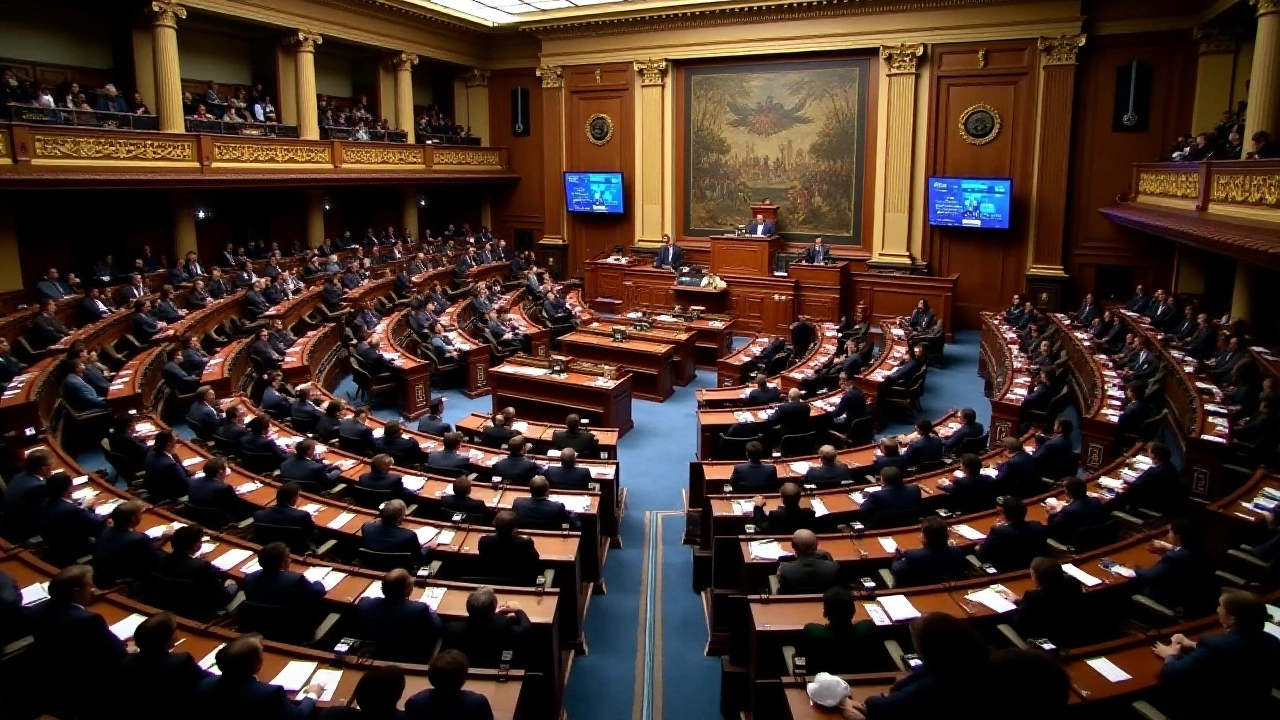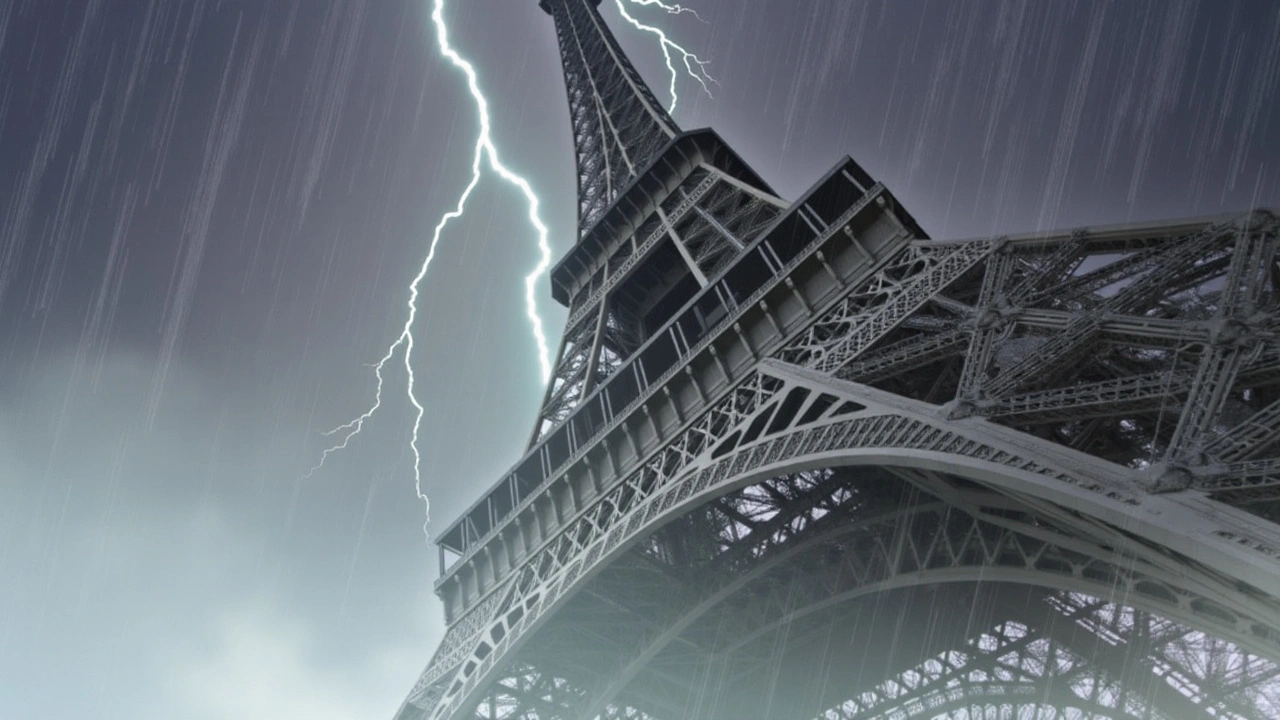Macron Faces Political Turmoil as French National Assembly Passes Historic No-Confidence Vote

Macron's Leadership under Scrutiny
In a landscape seething with political tension, President Emmanuel Macron stands at a critical juncture in his leadership of France. The recent passing of a historic no-confidence vote against Prime Minister Michel Barnier represents a significant shift in the country's political dynamics. The National Assembly's unexpected decision marks the first successful no-confidence motion since 1962, revealing the pervasive fractures within the French parliamentary system.
An Unlikely Alliance
In a rare display of unity, lawmakers from the far-right and the left-wing formed an unexpected coalition, united by shared frustration over budget irreconcilability and a desire to unseat the current government. The culmination of their efforts came as the no-confidence vote was passed with 331 votes, comfortably exceeding the 288 required to see the motion through. This alliance of opposing political ideologies stands as a testament to the unique pressures facing Macron and his government in today's turbulent French political climate.
The Aftermath of Legislative Discord
The no-confidence motion was spurred by a backdrop of budgetary disputes that have plagued Macron's government, exposing the depth of division within the National Assembly. Since the legislative elections earlier this year, which resulted in a surprisingly fractured parliament, Macron has faced persistent challenges in building consensus on crucial economic policies. Budget negotiations have been contentious, with lawmakers opposing various fiscal policies seen as antithetical to their constituents' interests. This discord has generated a climate ripe for political maneuvering and dramatic gestures, ultimately culminating in Barnier's ousting.

The Political Implications for Macron
For Emmanuel Macron, the consequences of this vote are far-reaching. He now shoulders the pressing task of appointing a reliable successor who can navigate the intricacies of an increasingly splintered parliament. The need for a prime minister capable of bridging ideological divides and fostering cooperation has never been more critical. Macron's ability to choose wisely will be instrumental in stabilizing his administration and ensuring the effectiveness of his policy agenda for the remainder of his term until 2027.
This event also punctuates a period of deep political instability in France, where traditional party lines are blurring, and alliances once thought improbable are materializing. Macron's leadership style and strategic decisions are likely to come under intense scrutiny as he grapples with these evolving dynamics and attempts to mitigate the fractures within his governing coalition.
Looking Forward
As he contemplates the future of his government, Macron must deliberate on a candidate for prime minister who not only garners broad parliamentary support but also aligns with his vision for France. It is a delicate balancing act that requires political acumen and a keen understanding of France's current political temperament. The choice could determine whether Macron can steer France through its present challenges or risk further political erosion.
This no-confidence vote is more than just a parliamentary procedure; it signifies a moment in French politics where longstanding conventions are being challenged, and new political currents are emerging. As the dust settles, France and the world will be watching closely to see how Macron responds to this pivotal moment in his presidency.
6 Comments
faye ambit
Seeing Macron navigate this unprecedented no‑confidence vote really forces us to think about the fragile nature of modern democracies. The alliance between far‑right and left‑wing deputies is a symptom of a deeper malaise, not just a tactical maneuver. It also raises the question of whether traditional party structures can ever regain relevance in such a fragmented parliament. Ultimately, the stability of France may hinge on a leader who can mediate rather than dominate.
Subhash Choudhary
Interesting take, thanks for sharing.
Ethan Smith
The vote is historic, but it also underscores how budgetary dead‑locks can erode confidence in government. A prime minister who can bridge the ideological chasm is now more essential than ever. Macron’s next appointment will likely be scrutinized for both competence and political calculus. If he chooses someone too close to his own camp, the opposition may double‑down; if he picks a consensus‑builder, his own agenda could be watered down. Either way, French citizens are watching closely, hoping for a return to functional governance.
Evelyn Monroig
Let’s not kid ourselves-this whole affair is a symptom of a deeper, orchestrated collapse. The elites have been engineering division for years, and this vote is just the latest move in their grand design to destabilize the nation. They thrive on chaos; a fragmented parliament makes it easier to push hidden agendas while the public bickers over budget minutiae. Macron’s appointment will likely be a puppet, ensuring that the real power stays out of sight. We must stay vigilant and question every so‑called “solution” that comes from the same corrupt cabal.
Gerald Hornsby
This is a drama‑filled moment, isn’t it? 🙂
Hina Tiwari
Wow, that was a lot to take in. The French political landscape feels like a roller coaster right now, and many of us are just trying to keep up. It’s clear that the budget impasse has become a flashpoint for deeper grievances that have been simmering for years. When you look at the voting patterns, you see a genuine frustration among representatives who feel unheard by the current administration. That frustration isn’t just about money; it’s about the feeling that ordinary citizens are being ignored in policy decisions.
Macron now has the delicate task of naming a prime minister who can appeal across this broken spectrum. It’s not enough to pick someone with technical expertise; the person must also have the diplomatic skill to mend bridges. If the new premier can demonstrate empathy and a willingness to listen, perhaps the opposition will lower its guard. On the other hand, if the appointee appears as another extension of the status quo, the backlash could intensify.
There’s also an international dimension. Europe watches France closely, and prolonged instability could have ripple effects on the eurozone. Investors, too, are nervous, and markets react to political uncertainty. All of this adds pressure on the new prime minister to act swiftly and decisively.
Ultimately, the situation is a reminder that democracy is a living process. It thrives on dialogue, compromise, and sometimes, uncomfortable change. Let’s hope the next steps bring a little more stability and a lot more listening.

Write a comment